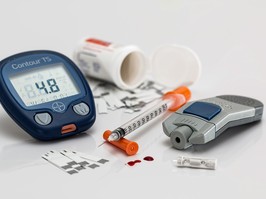young people with type 1 diabetes deal with stigma
two-thirds had felt embarrassed about their diabetes and were more likely to have poor blood sugar control than the one-third who did not experience stigma

many teens and young adults with type 1 diabetes experience stigma — feeling shame or embarrassment — about their disease. as a result, they do not take good care of their health, says a new study by the research institute of the mcgill university health centre in montreal, which found 380 participants using the social media channels of diabetes canada (which also supported the study), as well as diabetes clinics and organizations across the country. young people (male and female, between the ages of 14 and 24) completed an online survey that asked whether they told others they had diabetes, and whether they dealt with their diabetes care (or felt embarrassed about doing so) when with friends and other people.
two-thirds had felt embarrassed about their diabetes and were more likely to have poor blood sugar control than the one-third who did not experience stigma. over the previous year, this larger group was also more likely to have had either one or more events of dangerously low blood sugar that required help from another person, or an a1c level above 9%. (a1c is a measure of average blood sugar levels over the last two or three months; the target for most people with diabetes is 7% or less.) the study, which was published in the journal of medical internet research, also found that feelings of stigma were slightly more common among females (68%) than males (59%).
advertisement
[pn-pullquote text=”despite the fact that type 1 diabetes is not the fault of the person affected by it—it is not related to any behaviour patterns or choices—young people diagnosed with it experience a distressing level of stigma. research and programs that raise public awareness and support around type 1 diabetes, and that foster resiliency in those affected by it, are urgently needed. diabetes canada is pleased to have supported this first-of-its-kind research in canada.” source=”dr. jan hux, president and ceo of diabetes canada” /]
did you know?
through the virtual peer network, young people (ages 14 to 24) with type 1 diabetes can connect with their peers, and share experiences, information, tools, and videos. the private facebook group, which was created by diabetes canada in partnership with the canadian institutes for health research, will also help researchers in canada pinpoint what research is important for youth living with type 1 diabetes.
through the virtual peer network, young people (ages 14 to 24) with type 1 diabetes can connect with their peers, and share experiences, information, tools, and videos. the private facebook group, which was created by diabetes canada in partnership with the canadian institutes for health research, will also help researchers in canada pinpoint what research is important for youth living with type 1 diabetes.
this article appeared in diabetes dialogue.
disclaimer: this section has been written/provided by diabetes canada with the goal of educating canadians. the content on the website is intended for educational and informational purposes only. the content is not intended to provide medical advice and, to the extent that medical advice is required, users should consult with qualified medical professionals.
 2 minute read
2 minute read





